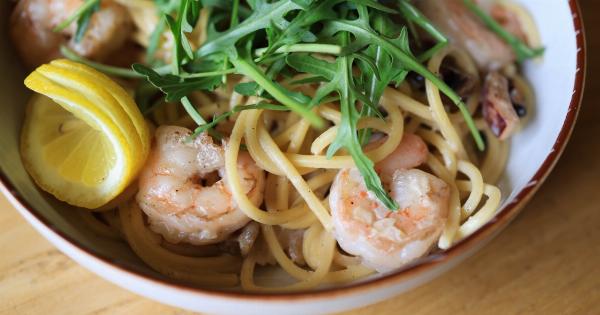Asthma is a chronic respiratory disease that affects millions of people worldwide. While many factors contribute to asthma, a food allergy can worsen this condition.
Individuals with asthma should be cautious of certain food allergens that could cause an allergic reaction and trigger asthma symptoms. Here, we will discuss the food allergens that people with asthma should avoid and how they can reduce their risk of an allergic reaction.
What Is Asthma?
Asthma is a chronic respiratory disease that causes inflammation and narrowing of the air passages in the lungs. It leads to difficulty breathing, wheezing, chest tightness, and coughing.
This condition can be controlled with proper treatment and management, but it cannot be cured.
What Are Food Allergens?
A food allergen is a protein in food that triggers an allergic reaction. People who are allergic to a particular food produce antibodies to this protein, which causes the immune system to overreact when the person consumes the food.
This overreaction can manifest as skin rashes, hives, swelling, difficulty breathing, and other symptoms.
Foods That Trigger Asthma Symptoms
While any food can potentially cause an allergic reaction, some foods are more likely to trigger asthma symptoms. These include:.
1. Milk
Studies show that milk is the second-most common food allergen among children with asthma. The protein in milk, known as casein, can cause an allergic reaction that leads to wheezing and breathing difficulties.
Individuals with asthma should consider eliminating milk and dairy products from their diet if they experience symptoms after consuming them.
2. Eggs
Eggs are another common food allergen that can worsen asthma symptoms. The egg white contains a protein called albumin, which can trigger an allergic reaction that leads to breathing difficulties.
People with asthma should also avoid products that contain eggs, such as mayonnaise, baked goods, and processed foods.
3. Peanuts
Peanuts are a well-known food allergen that can cause severe asthma symptoms in some people. The proteins in peanuts can trigger an allergic reaction that leads to breathing difficulties, chest tightness, and severe coughing.
It is essential to read labels carefully and avoid any foods that contain peanuts or peanut products.
4. Soy
Soy is another common food allergen that can trigger asthma symptoms in people with an allergy. The proteins in soy can cause an allergic reaction that leads to wheezing, chest tightness, and other respiratory symptoms.
Soy lecithin, a common food additive, is also derived from soy and may cause an allergic reaction in some people.
5. Wheat
Wheat allergies are less common than other food allergies, but they can still cause asthma symptoms. The proteins in wheat can trigger an allergic reaction that leads to breathing difficulties, coughing, and wheezing.
People with asthma should avoid wheat products, such as bread, pasta, and cereals.
6. Fish
Fish is a common food allergen that can cause severe asthma symptoms in some people. The protein in fish can trigger an allergic reaction that leads to breathing difficulties, chest tightness, and other respiratory symptoms.
People with asthma should avoid eating fish or any foods that contain fish, such as sushi and fish sauces.
7. Shellfish
Shellfish allergies are also common and can cause severe asthma symptoms. The proteins in shellfish can trigger an allergic reaction that leads to breathing difficulties, chest tightness, and other respiratory symptoms.
People with asthma should avoid eating shellfish, such as shrimp, crab, and lobster.
8. Tree nuts
Tree nuts, such as almonds, cashews, and walnuts, can also trigger severe asthma symptoms in some people. The proteins in tree nuts can cause an allergic reaction that leads to breathing difficulties, chest tightness, and other respiratory symptoms.
People with asthma should avoid eating tree nuts and products that contain them, such as nut spreads, snacks, and baked goods.
9. Sulfites
Sulfites are a type of preservative commonly used in dried fruits, wine, and processed foods. Some people with asthma can develop an allergic reaction to sulfites, which can lead to wheezing, difficulty breathing, and other respiratory symptoms.
People with asthma should read food labels carefully and avoid any products that contain sulfites.
10. Food Additives
Certain food additives, such as MSG, food coloring, and preservatives, can trigger asthma symptoms in some people. These additives can cause an allergic reaction that leads to breathing difficulties, chest tightness, and other respiratory symptoms.
People with asthma should read food labels carefully and avoid any products that contain these additives.
How to Reduce the Risk of an Allergic Reaction
People with asthma can reduce the risk of an allergic reaction by taking the following steps:.
- Avoiding foods that trigger asthma symptoms
- Reading food labels carefully
- Carrying an epinephrine auto-injector at all times
- Informing family, friends, and coworkers of the food allergens to avoid
- Having an asthma action plan in place with their healthcare provider
Conclusion
Asthma can be an unpredictable and challenging condition to manage. For people with food allergies, Asthma symptoms can worsen when consuming certain foods.
By avoiding common food allergens and being vigilant about reading food labels, individuals with asthma can reduce their risk of a reaction and improve their overall well-being.































